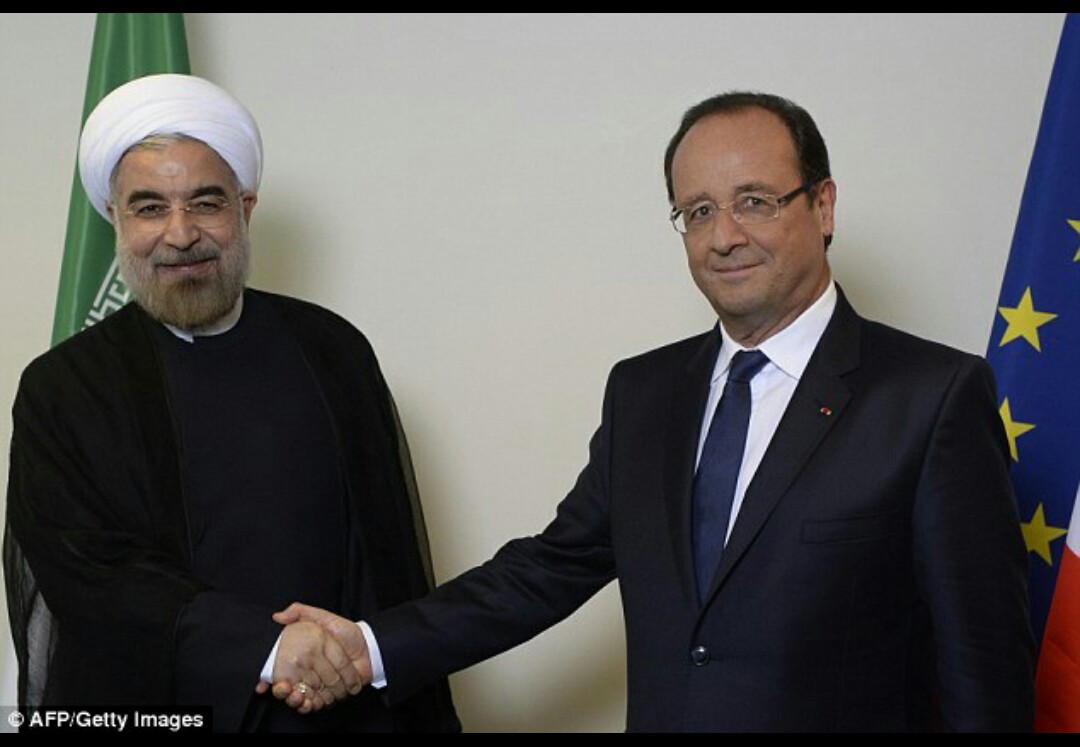To Whine Or Not To Wine? The Iranian President's Visit To Europe
To whine or not to wine?on

NEW DELHI: Iranian President Hassan Rouhani is a busy man, currently touring Europe and inking multi-billion dollar deals as Iran emerges from decades long sanctions that had effectively cut off its economy from the rest of the world.
This week, the Iranian leader arrived in France, having visited Italy before it. The visits, however, were not without controversy, with both France and Italy responding very differently to a, let’s say unique, request from Iranian officials. Billions of dollars aside, the main controversy regarding Rouhani’s new status and presence was a request from the Iranians that the menu for official meals be halal, with no wine/liquor to be served.
The Italians complied and decided not to serve wine at Monday’s state dinner, going even a step further as they covered up nude artistic statues in Rome in deference to Rouhani. Rouhani, who had never asked that the statues be covered responded with the diplomatic stance of a statesmen when he said, “I know that Italians are a very hospitable people, a people who try to do the most to put their guests at ease and I thank you for this.”
The decision by the Italian government to cover the statues was widely mocked and criticised, with Italians condemning the move as as “cultural submission.” "Respect for other cultures cannot and must not mean negating our own," said lawmaker Luca Squeri. "This isn't respect, it's canceling out differences and it's a kind of surrender." Rome City Councilman Gianluca Peciola started an online petition demanding that Renzi explain "a disgraceful decision which is a mortification of art and culture as universal values."
In France, the situation was quite the opposite, as the French government refused to comply with the Iranians’ request, saying that a halal menu and even more importantly, the absence of wine at lunch, went against France's republican values. The Elysee Palace suggested a breakfast with Rouhani instead, but this was said to be snubbed by the Iranian leader for being “too cheap,” or so the rumour mill goes.
A diplomatic source told the RTL radio station: “The leaders have missed out on a great opportunity to meet in the relaxed environment of a meal.”
Iran as a country is no stranger to cultural foreign policy gaffes, as the Swedish ambassador to Iran sparked a diplomatic spat by 'insultingly' crossing his legs in front of then president Mahmoud Ahmadinejad two years ago. Peter Tejler crossed his legs casually during a formal meeting in in Tehran, causing offence by accidentally revealing the soles of his shoes.
Nor should the role of cuisine and cultural considerations in foreign diplomacy come as a surprise. After all -- to put things in perspective, if Indian Prime Minister Narendra Modi attended a state lunch in Washington, where beef was served, it would likely cause an uproar across the world.
Fortunately, the controversy over wine didn’t affect business too much, as Iran and France signed deals worth billions of dollars, 33 billion USD to be exact, during the visit.
Here are details of some of the agreements:
• France’s Peugeot-Citroen announced a deal with Iranian automaker Khodro on Thursday to produce 200,000 cars a year in Iran. The deal, which will see the first cars produced in 2017, is worth $436 million, Peugeot-Citroen said.
• French energy company Total said Thursday it will sign a deal to buy crude oil from Iran, AFP reported.
• Airbus will deliver 118 passenger planes to Iran Air, as well as provide pilot and maintenance training, Airbus announced Thursday in Paris.
• France’s state rail company SNCF signed a deal with its Iranian counterpart, La Tribune reported.



